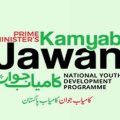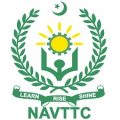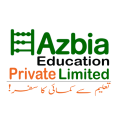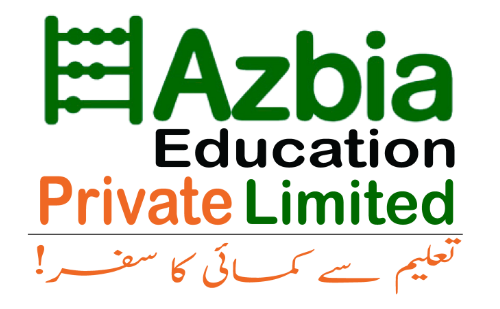Education beyond intermediate is one of the ways to overcome poverty. However, access to higher education is itself distributed very unevenly. For example, only 0.4% of the children from the lowest income quintile (from the relevant age cohort)
COURSES
At Azbia, we aim to equip learners with practical skills through our range of short courses. These programs are designed to enhance career opportunities and provide learners with the flexibility to choose the mode of learning that suits them best.
- Online Courses (Paid): Flexible, accessible, and self-paced programs that allow learners to gain valuable skills from the comfort of their homes.
- On-Site Courses (Free): Conducted in collaboration with NAVTTC, BBSYDP, and Kamyab Jawan Pakistan, these physical classes are completely free of cost and focus on hands-on training for professional growth.
Whether you are looking to learn online at your own pace or benefit from free, practical on-site training, Azbia provides opportunities that help you grow and succeed.
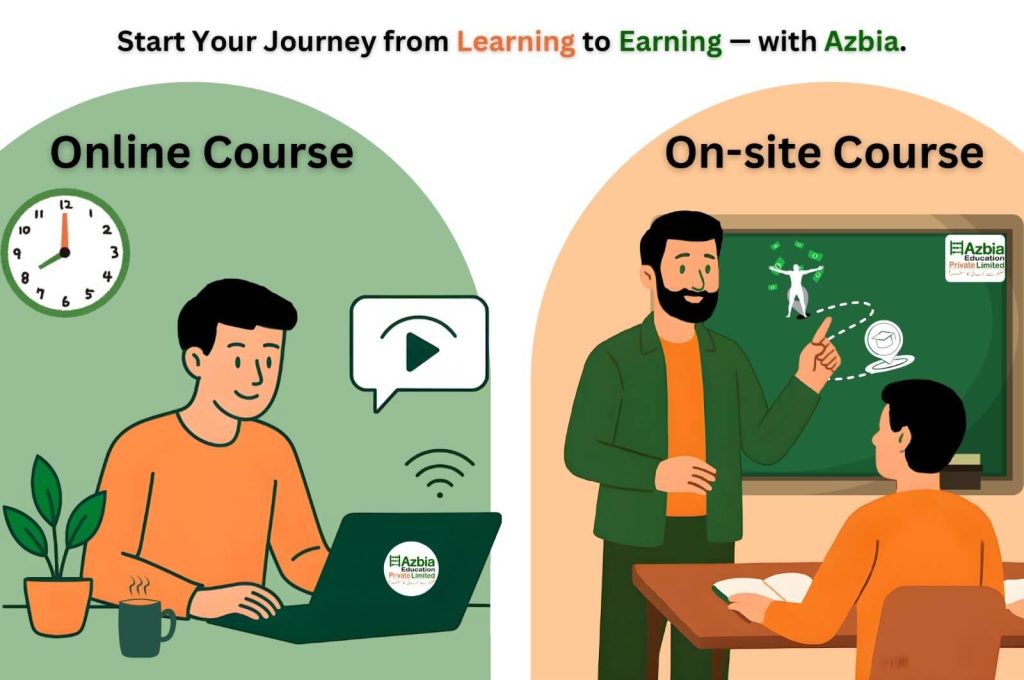
تعلیم سے کمائی کا سفر
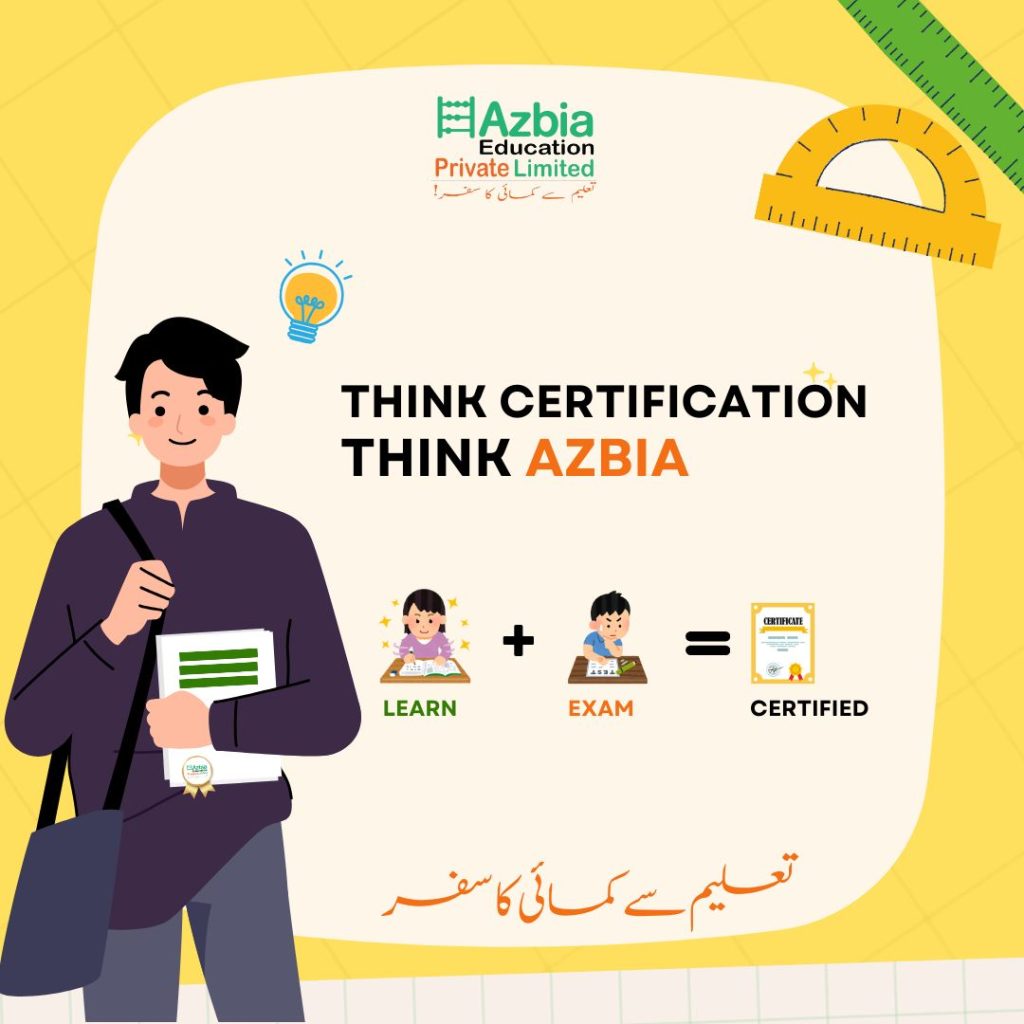
Select Course Type
👉 Enroll today and take the next step toward your future with Azbia!
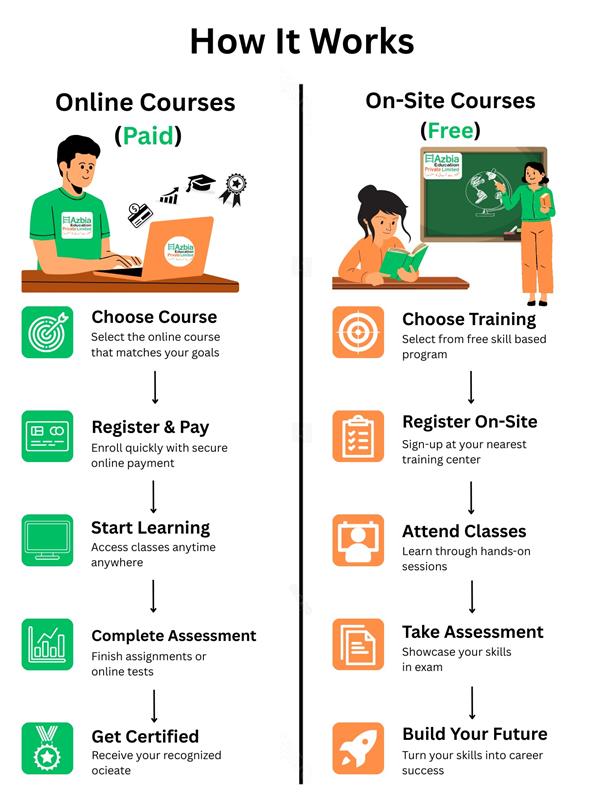
HOW IT WORKS
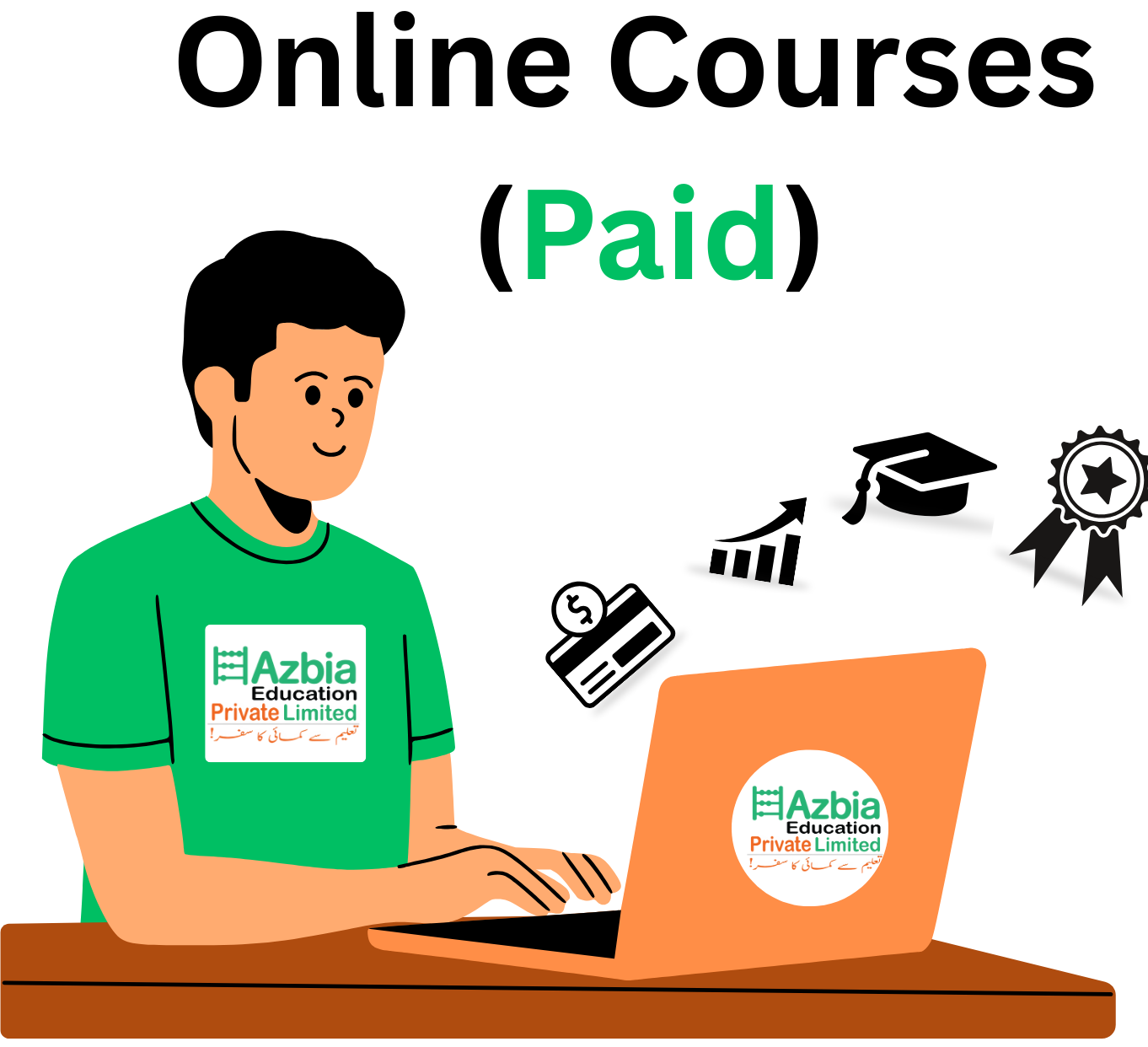
Choose Course
Select the online course that matches your goals

Register & Pay
Enroll quickly with secure online payment

Start Learning
Access classes anytime anywhere

Complete Assesment
Finish assignments or online tests

Get Certified
Receive your recognized ocleate
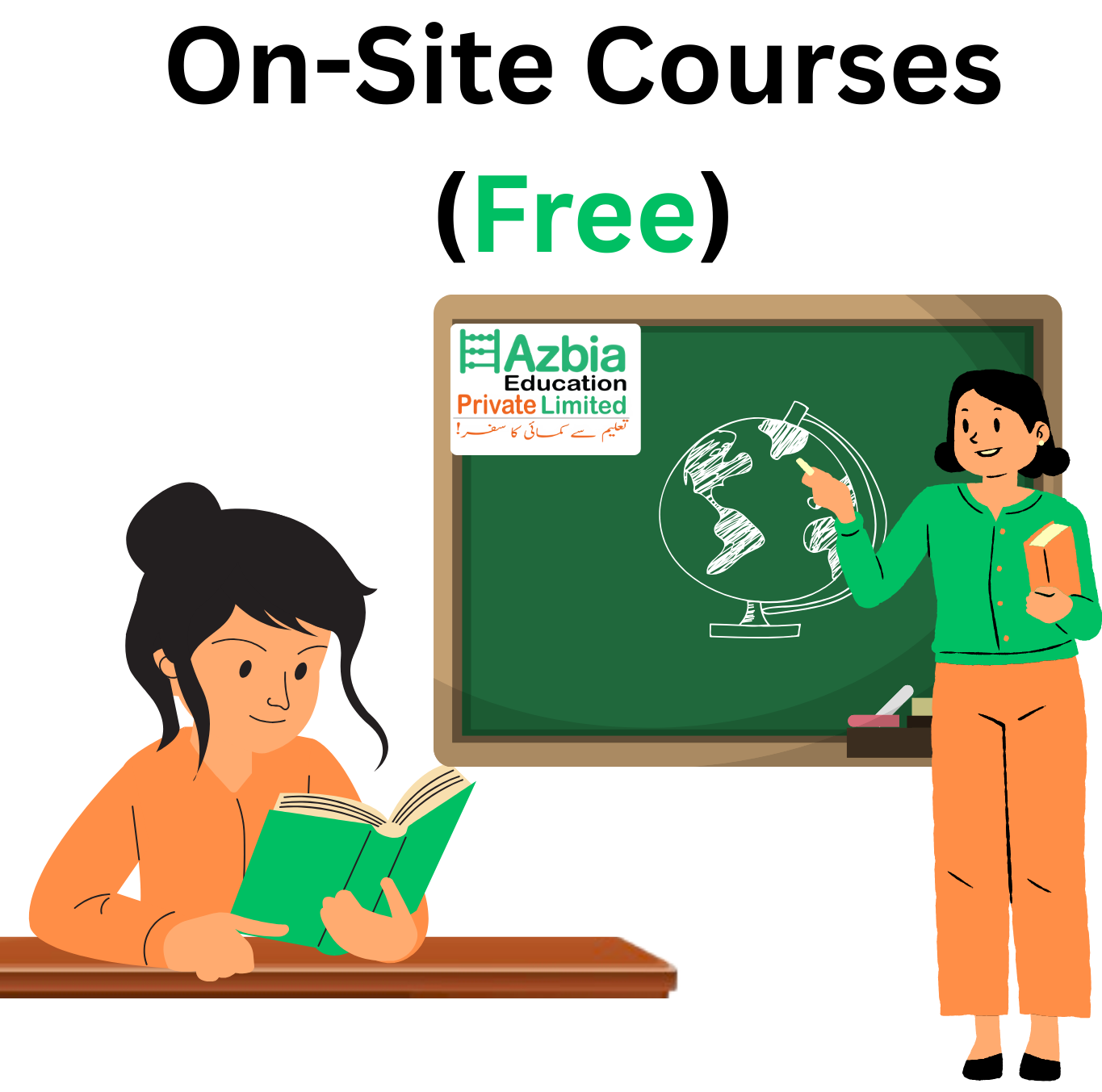
Choose Training
Select from free skill-based program

Register On-Site
Enroll quickly with secure online payment

Attend Classes
Learn through hands-on sessions

Take Assessment
Showcase your skills in exam

Build Your Future
Turn your skills into career success
Virtual College Mobile College

Free Courses
BENAZIR UNDERGRADUATE
Education beyond intermediate is one of the ways to overcome poverty. However, access to higher education is itself distributed very unevenly. For example, only 0.4% of the children from the lowest income quintile (from the relevant age cohort)
BENAZIR UNDERGRADUATE COURSE
Education beyond intermediate is one of the ways to overcome poverty. However, access to higher education is itself distributed very unevenly. For example, only 0.4% of the children from the lowest income quintile (from the relevant age cohort)

In Collaboration With

